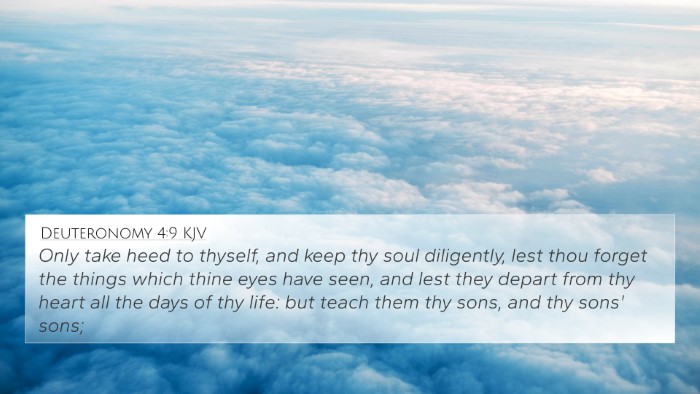Understanding Judges 3:7
Bible Verse: Judges 3:7 - "And the children of Israel did evil in the sight of the Lord, and forgot the Lord their God, and served Baalim and the groves."
This verse sets a somber tone for the narrative in the Book of Judges, highlighting the cyclical pattern of sin and redemption that characterizes much of Israel's history. To unpack the meaning of this verse, we can draw insights from several public domain commentaries including those by Matthew Henry, Albert Barnes, and Adam Clarke.
Commentary Insights
-
Matthew Henry:
Matthew Henry indicates that the phrase "did evil in the sight of the Lord" signifies a deliberate choice to turn away from God and pursue idolatry. He emphasizes the gravity of this statement, noting how it reflects Israel's forgetfulness of God's past mercies and deliverances.
-
Albert Barnes:
Barnes expands on the context of Israel's sin, linking it to their failure to remember their covenant with God. He points out that "Baalim" refers to multiple Baal deities worshipped by the surrounding nations, indicating a betrayal of their unique relationship with the one true God.
-
Adam Clarke:
Clarke highlights the significance of "the groves," suggesting these were places of Asherah worship, further illustrating Israel's inclination towards sin. He notes that this act of idolatry brought severe repercussions, as abandoning God leads to oppression and suffering.
Thematic Connections
This verse not only reveals Israel's sinful behavior but also invites us to explore the broader themes of rebellion against God, the consequences of idolatry, and the need for repentance.
Cross-References
- Exodus 20:3-5: God's command against idolatry.
- Deuteronomy 8:11-14: A reminder to remember the Lord when prospering.
- 1 Samuel 12:9: A historical account of Israel's forgetfulness of God.
- Psalm 106:19-21: An acknowledgment of Israel's history of idolatry.
- Jeremiah 2:13: God's lament over Israel's forsaking Him for broken cisterns.
- Matthew 4:10: Jesus' rebuke of Satan, emphasizing worship due only to God.
- Revelation 2:4-5: A call to remember and repent for forsaking one's first love, relevant to Israel’s forgetfulness.
Connecting Themes in Scripture
The directives to avoid idolatry and to remember God are not isolated but rather echo through various parts of the Bible:
-
Idolatry and its Consequences:
The history of Israel is rife with examples of how turning from God to serve idols results in judgment and suffering (e.g., Jeremiah 7:18-20).
-
The Call to Remember:
Throughout scripture, God calls His people to remember His deeds, as seen in Psalms and the Prophets, reaffirming one's relationship with Him (e.g., Isaiah 46:9).
Importance of Contextual and Comparative Analysis
Understanding Judges 3:7 calls for a comparative Bible verse analysis. Readers can assess the similarities and differences between Israel's actions across different periods and how they parallel themes in other scriptures about faithfulness to God versus infidelity.
Application to Contemporary Believers
This verse serves as a powerful reminder for modern believers about the perils of forgetting God amid prosperity and the allure of worldly distractions. The connections between the themes of idolatry, forgetfulness, and repentance resonate deeply, urging believers to maintain their focus on God.
Conclusion
Judges 3:7 encapsulates a fundamental aspect of the human condition—our tendency to forget and stray from God. By engaging with the verse through various commentaries and cross-references, one can grasp the profound implications for both ancient Israel and today's followers of Christ. Engagement in Bible cross-referencing tools, such as concordances and thematic studies, can aid in further understanding and applying these teachings to our lives.


















